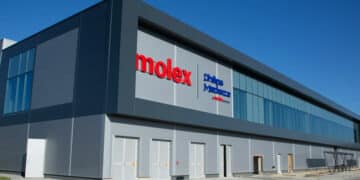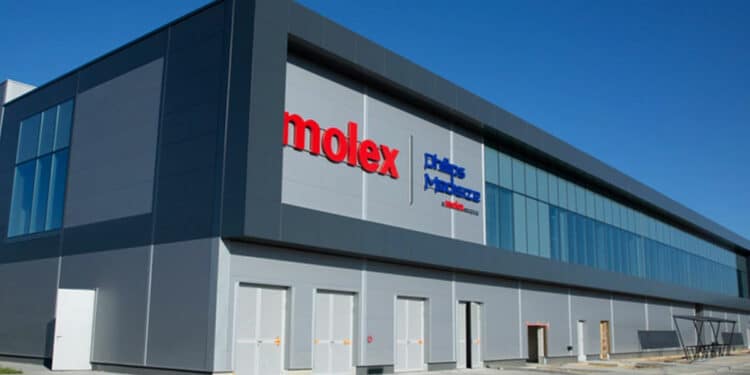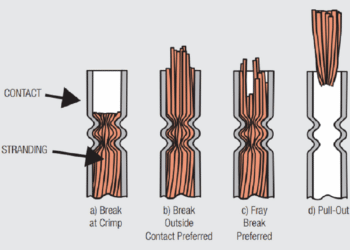Molex, a global electronics leader and connectivity innovator, announced a major expansion of its global manufacturing footprint with the opening of a new campus in Katowice, Poland.
The facility’s initial 23,000 square-meter manufacturing space will serve as a strategic central location to help facilitate timely delivery of advanced medical devices for Phillips-Medisize, a Molex company, as well as electric vehicle and electrification solutions for Molex customers. Future expansion of up to 85,000 square meters is built into Molex’s ambitious growth plans for the facility, further increasing Molex’s presence in Poland, adding to existing sites in Rokitki and Sulęcin.
“The Katowice campus will expand our European footprint, providing our pharmaceutical, diagnostic and medtech customers with new capabilities and the expert support they need to bring innovative new products to market,” said Paul Chaffin, Phillips-Medisize SVP and president of Molex Medical and Pharma Solutions. “This ultimately allows us to further our vision of enabling patients all over the world to live healthier, more productive lives. We look forward to becoming an active part of the local community, as we work together to create significant value for our customers, our new team members and ultimately patients.”
Molex has so far invested $110 million in these world-class facilities that will initially support Phillips-Medisize with production of pharmaceutical, medical and diagnostic devices. The site will have state-of-the-art capabilities, including advanced medical device assembly, packaging, drug handling and injection molding. Additionally, the campus will manufacture interconnect battery solutions for electric vehicles and high-power busbar solutions for Molex’s electrification business.
Katowice will complement Phillips-Medisize’s existing operations at six European manufacturing sites in Donegal and Sligo, Ireland; Struer, Denmark; Trhove Sviny, Czech Republic; and two locations in Kontiolahti, Finland.
The large pool of skilled manufacturing and engineering resources in the Katowice area was a major factor influencing Molex’s selection of the site location. At planned capacity, the first facilities within the campus will employ approximately 350 employees, including highly skilled production operators, design engineers and quality specialists.
Combining high technology expertise and skilled labor means that both Phillips-Medisize medical customers and Molex automotive and electrification customers now have access to the company’s expert capabilities, high-quality services and support in a location that enables speed-to-market and superior quality in product delivery.
The campus will be the first site for both Molex and Phillips-Medisize to hold a LEED Gold certification. ISO 13485 certification is pending construction completion, with additional certifications and registrations to follow, offering more localized value to those customers who require this exacting manufacturing quality.Equally important, 91% of the survey participants reported a strong correlation between their ability to deliver reliable products with having trusted, proven supplier relationships. To that end, 96% of the respondents have changed part suppliers due to reliability issues, with more than a quarter reporting frequent changes. Overall, these supplier relationships are becoming increasingly critical, as evidenced by 74% of respondents who believe reliability is at risk due to shortening design cycles.
“Reliability is a real ‘rubber meets the road’ topic with far-reaching implications across every facet of product development, manufacturing and ultimately, end-user experience,” said Scott Whicker, SVP and president, Transportation Innovative Solutions, Molex. “It’s so critical to pick the right partners, deploy the most effective processes, and leverage the latest data insights to accelerate the design and development of the most reliable products possible. Our latest global industry survey offers a snapshot of changing expectations for product reliability and the realities of design tradeoffs, along with growing optimism that AI and data-driven innovations will take product reliability to the next level.”



















